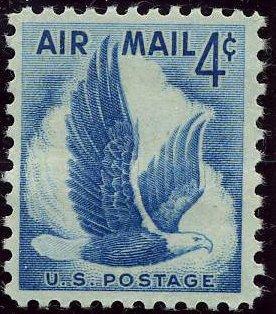Webb wrote:OldAirmail wrote: This was not a case where the FBI said that they want to look at everyone's phone records.
Unfortunately, it was.
The government wanted to establish the precedent that it could force software writers to provide "back doors" to defeat their own security.
No need to worry, though. We know how good the government is at keeping secrets. This hack would have been public information within hours.
If you don't know what the government found on the phone, it was nothing, zero, zip, zilch - which everyone expected.
"It is better that ten guilty persons escape than that one innocent suffer" - William Blackstone
Sorry, Jim. A judge must be convinced that there is probable cause before issuing a search warrant. You know that far better than I.
If a judge is convinced that that there is sufficient evidence of pedophilia, or other crime, then a warrant can be issued to search someone's home, computer, etc. Why are iPhone's more sacrosanct?
Are you saying that judges shouldn't issue warrants? Or that that warrants can be ignored if a person/organization/company disagrees with the order.
They can be fought by someone as powerful as Apple. But Apple went beyond that.
"The government wanted to establish the precedent that it could force software writers to provide "back doors" to defeat their own security."And what was the FBI asking? I printed a quote from the ARS Technica article -
The iPhone requires that its firmware have a digital signature that authentically demonstrates that the firmware was developed by Apple and has not been subsequently modified. The FBI does not have (and is not asking for) access to Apple's signing key. It is instead asking for Apple to use its signing key to sign the custom firmware so that the iPhone will accept it and run it. It is this signature requirement that means the FBI cannot create the software itself.
It's this same requirement that also means that iPhone users would be safe even if the special firmware leaked. Changing the embedded unique identifier within the special firmware would break the signature and thus cause targeted iPhones to reject the firmware. This is why complying with the court demand would not jeopardize the security of any other phones. The cryptographic safeguards don't allow it.
I thought that ARS stated it fairly.
"No need to worry, though. We know how good the government is at keeping secrets. This hack would have been public information within hours."So.
You say that the government DID gain assess.
Perhaps you could direct me to this open secret that was leaked from the government? Google seems unable to find it. Yahoo, maybe?
In simply quoting Blackstone's formulation you may lead people to disregard the possible repercussions based on the severity of a crime/s.
The X>one formulation is fine for minor crimes. Ten guilty shoplifters erroneously let go will harm society very little, all things considered.
But, in this case, the failure of a company to comply with a justifiable warrant
could have lead to more deaths than those in San Bernardino.
Then too, we have a corollary to Blackstone's formulation - No one should be convicted of a crime least they be innocent.
If we're tossing out quotes - Arnaud Amalric (died 1225) isn't as well remembered as Blackstone, even though more people will recognize something attributed to him.
He's remembered for supposedly advising a soldier, who was worried about killing orthodox Catholics instead of just heretic Cathars prior to the sack of Béziers, to simply kill everyone as God would sort it all out later.
(Wiko.)"If you don't know what the government found on the phone, it was nothing, zero, zip, zilch - which everyone expected."That sound like a justification for your point of view. Unfortunately it's spurious. Until the information was actually looked at, any assumptions by you, or anyone else, was simple speculation.












 ??
?? 
